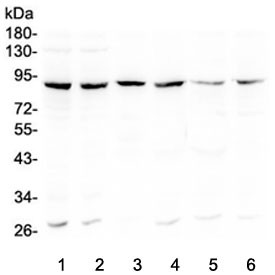Cookie preferences
This website uses cookies, which are necessary for the technical operation of the website and are always set. Other cookies, which increase the comfort when using this website, are used for direct advertising or to facilitate interaction with other websites and social networks, are only set with your consent.
Configuration
Technically required
These cookies are necessary for the basic functions of the shop.
"Allow all cookies" cookie
"Decline all cookies" cookie
CSRF token
Cookie preferences
Currency change
Customer-specific caching
FACT-Finder tracking
Individual prices
Selected shop
Session
Comfort functions
These cookies are used to make the shopping experience even more appealing, for example for the recognition of the visitor.
Note
Show the facebook fanpage in the right blod sidebar
Statistics & Tracking
Affiliate program
Conversion and usertracking via Google Tag Manager
Track device being used
| Item number | Size | Datasheet | Manual | SDS | Delivery time | Quantity | Price |
|---|---|---|---|---|---|---|---|
| NSJ-RQ4637 | 100 µg | - | - |
3 - 10 business days* |
755.00€
|
If you have any questions, please use our Contact Form.
You can also order by e-mail: info@biomol.com
Larger quantity required? Request bulk
You can also order by e-mail: info@biomol.com
Larger quantity required? Request bulk
0.5mg/ml if reconstituted with 0.2ml sterile DI water. B-cell lymphoma 6 protein is a protein... more
Product information "Anti-Bcl6"
0.5mg/ml if reconstituted with 0.2ml sterile DI water. B-cell lymphoma 6 protein is a protein that in human is encoded by the BCL6 gene. Like BCL2, BCL3, BCL5, BCL7A, BCL9 and BCL10, it has clinical significance in lymphoma. The protein encoded by this gene is an evolutionarily conserved zinc finger transcription factor and contains an N-terminal POZ/BTB domain. This protein acts as a sequence-specific repressor of transcription and has been shown to modulate the STAT-dependent Interleukin 4 (IL-4) responses of B cells. This protein can interact with several corepressor complexes to inhibit transcription. This gene is found to be frequently translocated and hypermutated in diffuse large B cell lymphoma (DLBCL) and contributes to the pathogenesis of DLBCL. An exon 7 skipping splice variant encodes a shorter form of the protein which lacks the first two zinc fingers of the DNA binding domain. Protein function: Transcriptional repressor mainly required for germinal center (GC) formation and antibody affinity maturation which has different mechanisms of action specific to the lineage and biological functions. Forms complexes with different corepressors and histone deacetylases to repress the transcriptional expression of different subsets of target genes. Represses its target genes by binding directly to the DNA sequence 5'-TTCCTAGAA-3' (BCL6- binding site) or indirectly by repressing the transcriptional activity of transcription factors. In GC B-cells, represses genes that function in differentiation, inflammation, apoptosis and cell cycle control, also autoregulates its transcriptional expression and up-regulates, indirectly, the expression of some genes important for GC reactions, such as AICDA, through the repression of microRNAs expression, like miR155. An important function is to allow GC B-cells to proliferate very rapidly in response to T-cell dependent antigens and tolerate the physiological DNA breaks required for immunglobulin class switch recombination and somatic hypermutation without inducing a p53/TP53-dependent apoptotic response. In follicular helper CD4(+) T-cells (T(FH) cells), promotes the expression of T(FH)-related genes but inhibits the differentiation of T(H)1, T(H)2 and T(H)17 cells. Also required for the establishment and maintenance of immunological memory for both T- and B-cells. Suppresses macrophage proliferation through competition with STAT5 for STAT-binding motifs binding on certain target genes, such as CCL2 and CCND2. In response to genotoxic stress, controls cell cycle arrest in GC B-cells in both p53/TP53- dependedent and -independent manners. Besides, also controls neurogenesis through the alteration of the composition of NOTCH- dependent transcriptional complexes at selective NOTCH targets, such as HES5, including the recruitment of the deacetylase SIRT1 and resulting in an epigenetic silencing leading to neuronal differentiation. [The UniProt Consortium]
| Keywords: | Anti-BCL5, Anti-BCL6, Anti-BCL-5, Anti-BCL-6, Anti-Protein LAZ-3, Anti-Zinc finger protein 51, Anti-B-cell lymphoma 6 protein, Anti-B-cell lymphoma 5 protein, Anti-Zinc finger and BTB domain-containing protein 27, Bcl6 Antibody |
| Supplier: | NSJ Bioreagents |
| Supplier-Nr: | RQ4637 |
Properties
| Application: | WB, IHC (paraffin), FC |
| Antibody Type: | Polyclonal |
| Conjugate: | No |
| Host: | Rabbit |
| Species reactivity: | human, mouse, rat |
| Immunogen: | Amino acids ASPADSCIQFTRHASDVLLNLNRLRSRDILTD |
| Format: | Purified |
Database Information
| KEGG ID : | K15618 | Matching products |
| UniProt ID : | P41182 | Matching products |
| Gene ID | GeneID 604 | Matching products |
Handling & Safety
| Storage: | +4°C |
| Shipping: | +4°C (International: +4°C) |
Caution
Our products are for laboratory research use only: Not for administration to humans!
Our products are for laboratory research use only: Not for administration to humans!
Information about the product reference will follow.
more
You will get a certificate here
Viewed










